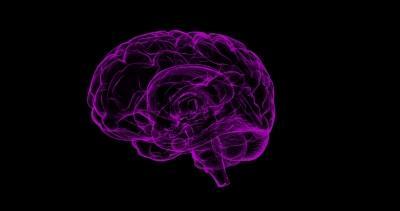
Experiencing childhood trauma makes body, brain age faster
New York, Aug 3 (IANS) Children who suffer trauma from abuse or violence early in life show biological signs of ageing faster than children who have never experienced adversity, say researchers.
The study, published in the journal Psychological Bulletin, examined three different signs of biological ageing -- early puberty, cellular ageing and changes in brain structure -- and found that trauma exposure was associated with all three.
"Exposure to adversity in childhood is a powerful predictor of health outcomes later in life--not only mental health outcomes like depression and anxiety but also physical health outcomes like cardiovascular disease, diabetes and cancer," said study author Katie McLaughlin from the Harvard University in the US.
"Our study suggests that experiencing violence can make the body age more quickly at a biological level, which may help to explain that connection," McLaughlin added. Previous research found mixed evidence on whether childhood adversity is always linked to accelerated ageing. For the current study, the research team decided to look separately at two categories of adversity: threat-related adversity, such as abuse and violence, and deprivation-related adversity, such as physical or emotional neglect or poverty.
The researchers performed a meta-analysis of almost 80 studies, with more than 116,000 total participants. They found that children who suffered threat-related trauma such as violence or abuse were more likely to enter puberty early and also showed signs of accelerated ageing on a cellular level. However, children who experienced poverty or neglect did not show either of those signs of early ageing. In a second analysis, the team systematically reviewed 25 studies with more than 3,253 participants that examined how early-life adversity affects brain development.
They found that adversity was associated with reduced cortical thickness - a sign of ageing because the cortex thins as people age. However, different types of adversity were associated with cortical thinning in different parts of the brain. Trauma and violence were associated with thinning in the ventromedial prefrontal cortex, which is involved in social and emotional processing.
While deprivation was more often associated with thinning in the frontoparietal, default mode and visual networks, which are involved in sensory and cognitive processing.The new research underscores the need for early interventions to help avoid those consequences.
"The fact that we see such consistent evidence for faster ageing at such a young age suggests that the biological mechanisms that contribute to health disparities are set in motion very early in life," McLaughlin said.
"This means that efforts to prevent these health disparities must also begin during childhood," McLaughlin added.
--IANS
bu/kr

Legal Disclaimer:
MENAFN provides the information “as is” without warranty of any kind. We do not accept any responsibility or liability for the accuracy, content, images, videos, licenses, completeness, legality, or reliability of the information contained in this article. If you have any complaints or copyright issues related to this article, kindly contact the provider above.
Most popular stories
Market Research

- Manuka Honey Market Report 2024, Industry Growth, Size, Share, Top Compan...
- Modular Kitchen Market 2024, Industry Growth, Share, Size, Key Players An...
- Acrylamide Production Cost Analysis Report: A Comprehensive Assessment Of...
- Fish Sauce Market 2024, Industry Trends, Growth, Demand And Analysis Repo...
- Australia Foreign Exchange Market Size, Growth, Industry Demand And Forec...
- Cold Pressed Oil Market Trends 2024, Leading Companies Share, Size And Fo...
- Pasta Sauce Market 2024, Industry Growth, Share, Size, Key Players Analys...





















Comments
No comment